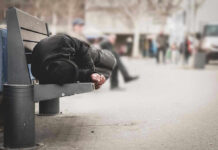A stray bullet in New Orleans has left two children orphaned, reigniting conservative outrage over urban violence and failed progressive policies that continue to endanger innocent Americans.
Story Snapshot
- A visiting single mother, 33, was killed by a stray bullet during her birthday trip to New Orleans, leaving her two children without a parent.
- Despite a drop in violent crime in 2025, gun violence remains a persistent threat, particularly for innocent bystanders and tourists.
- Decades of failed city leadership and soft-on-crime policies are under renewed scrutiny as families and businesses face the consequences.
- Conservative calls for accountability and constitutional protection gain urgency amid ongoing public safety concerns.
Tragedy Strikes a Family Visiting New Orleans
During a birthday celebration in New Orleans, a 33-year-old single mother was fatally struck by a stray bullet, leaving her two young children orphaned. This devastating event occurred in a public area, not as the result of a targeted attack, but from uncontrolled urban violence that has long plagued the city. The victim was a visitor, underscoring the broader danger facing not just residents but any American traveling to cities struggling to restore order and safety.
2 kids orphaned after single mom, 33, killed by stray bullet during birthday trip to New Orleans https://t.co/t9nTNpMVu6 pic.twitter.com/8ik5T9SRcW
— New York Post (@nypost) September 30, 2025
The emotional and social shock of this tragedy is amplified by the fact that two children are now without their mother, a stark reminder of the human cost of failed urban policy and ineffective crime prevention. Such incidents have become all too familiar in major cities, and the ripple effects reach far beyond the immediate victims, impacting families, communities, and the nation’s collective sense of security.
Background: Decades of Violence and Missed Opportunities
New Orleans has endured one of the highest rates of violent crime in the nation since the early 1990s. Despite aggressive law enforcement partnerships and the implementation of violence reduction strategies, the city’s reputation for gun violence persists. High-profile incidents, like shootings in popular tourist areas, have drawn national attention and driven away visitors. While 2025 saw a 34% reduction in murders and improvements in other crime statistics, sporadic incidents still occur, often ensnaring innocent bystanders.
For many, these improvements are too little, too late. The failure to address root causes, enforce laws consistently, and protect law-abiding citizens has left families vulnerable. Decades of soft-on-crime leadership and misplaced priorities, including leniency for offenders and undercutting police authority, have undermined public trust and emboldened criminal elements.
Stakeholders Demand Answers and Action
The impact of this tragedy is felt most acutely by the victim’s children and extended family, who must now navigate life without their mother. The New Orleans Police Department, led by Chief Anne Kirkpatrick, is investigating, but the challenges are significant. City officials, including the mayor and district attorney, face mounting pressure to deliver results and restore confidence. Community organizations are stepping in to provide support, but resources are stretched thin as demand for victim services grows.
Law enforcement and city leadership hold the power to direct investigations and set policy, yet their effectiveness has come under question. Community groups and victim advocates argue for stronger protections, while local businesses worry about the impact on tourism and the city’s already fragile economy. The broader public, especially visitors, are left to decide whether New Orleans remains a safe destination.
Current Developments: Crime Down But Not Out
Recent years have seen a significant decline in violent crime statistics in New Orleans, but isolated tragedies like this continue to challenge any narrative of safety. Law enforcement partnerships have produced more arrests and warrants, and officials tout a higher homicide solve rate. Yet, the ongoing investigation into this shooting highlights the limitations of data-driven optimism. Victim support services are being coordinated, but the trauma and loss for the orphaned children are immeasurable.
Public statements from city leaders emphasize their commitment to prevention and intervention, but critics question whether enough has been done to secure the streets. The timeline reveals a pattern: periodic spikes in violence, followed by periods of relative calm, with each new incident renewing calls for action and accountability.
Impact and Conservative Perspectives
The immediate consequences of this tragedy are profound: trauma, grief, and a loss that cannot be measured. The long-term effects—for the children, their family, and the broader community—are equally sobering. Economic and social fallout includes damage to the city’s reputation, loss of tourism revenue, and increased pressure on public services. For conservatives, the lesson is clear: constitutional rights and family values must be prioritized, and there can be no tolerance for policies that embolden criminals or leave law-abiding Americans at risk.
Expert analysis points to a fragile improvement in crime rates, but warns that progress is easily reversed when leadership wavers or constitutional protections are undermined. Community advocates stress the need for both prevention and robust law enforcement. The debate continues between those pushing for more intervention and those demanding a return to common-sense policing and accountability. Only by upholding conservative principles of law, order, and individual responsibility can such tragedies be prevented in the future.
Sources:
Record low homicide: New Orleans sees dramatic crime decrease
New Orleans Gun Violence Statistics
New Orleans Crime Rate: 2025 Trends
New Orleans Crime Trends Report











